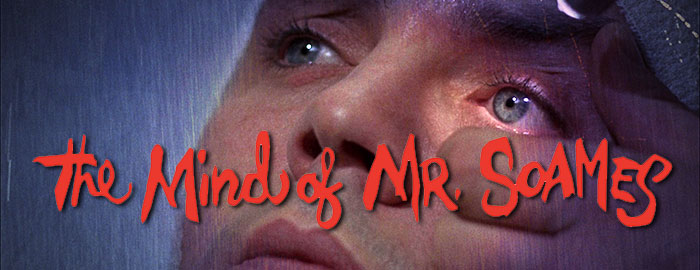
Color, 1970, 130 mins.
Directed by Alan Cooke
Starring Terence Stamp, Robert Vaughn, Nigel Davenport, Christian Roberts, Donal Donnelly, Norman Jones
Indicator (Blu-ray) (UK R0 HD), Sony (DVD-R) (US R0 NTSC) / WS (1.85:1) (16:9)
Most 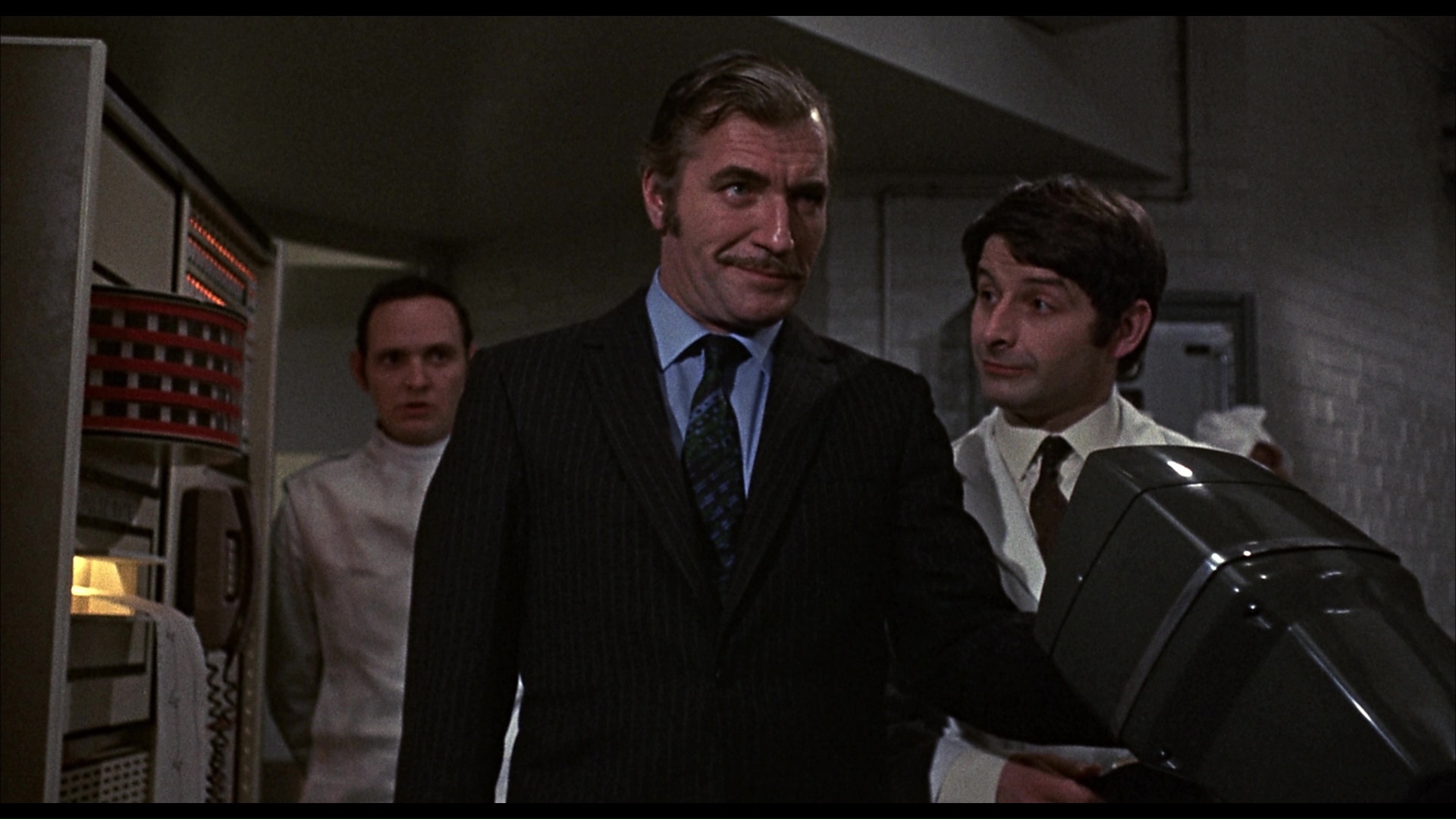 horror fans know the name Amicus
horror fans know the name Amicus 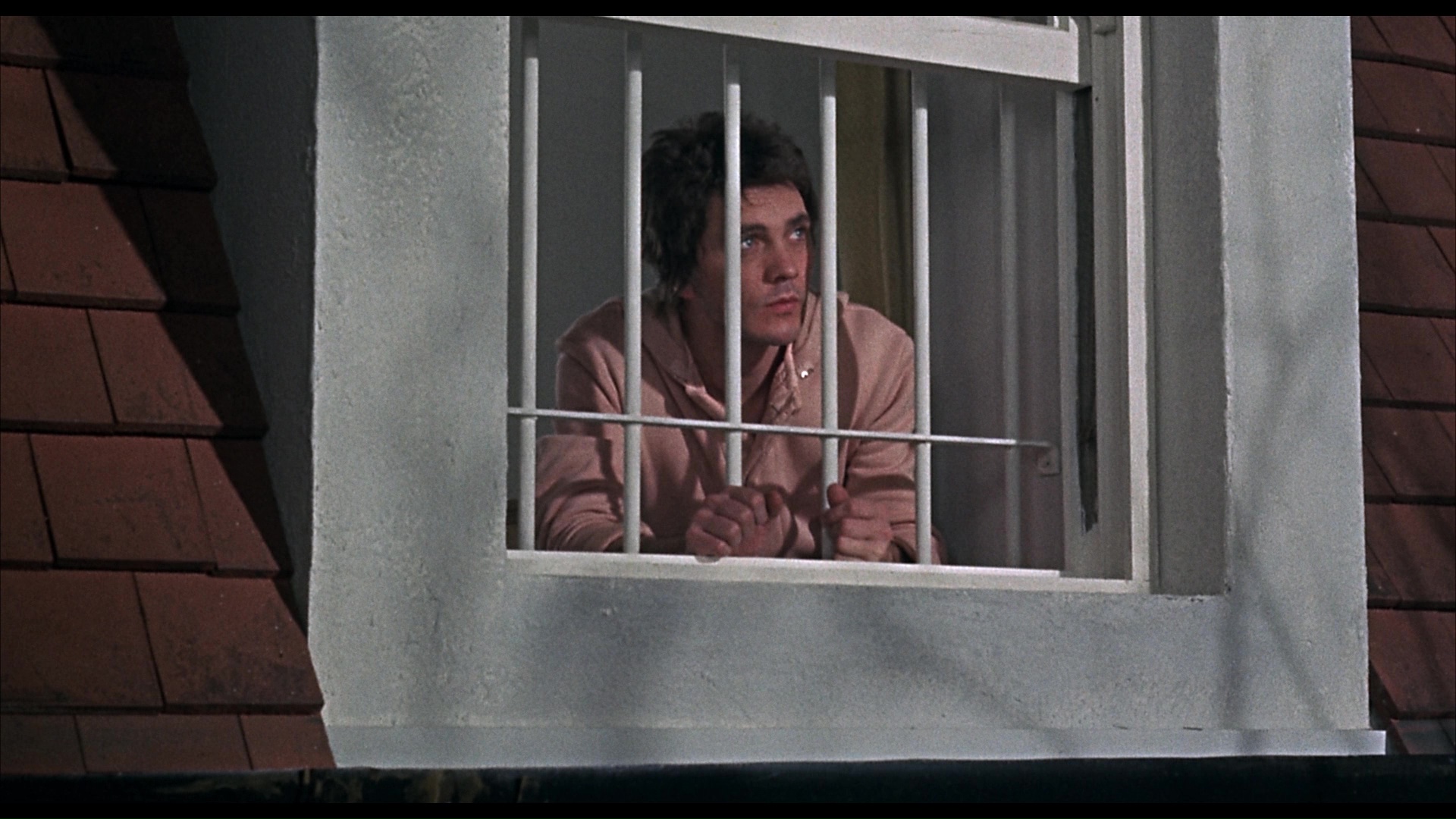 Films for a string of memorable anthology films like Tales from the Crypt and Asylum, but occasionally they dabbled in feature-length stories as well like The Skull and I, Monster. None of these achieved the popularity of their omnibus classics, but one of their more adventurous efforts was 1970's little-known but fascinating The Mind of Mr. Soames.
Films for a string of memorable anthology films like Tales from the Crypt and Asylum, but occasionally they dabbled in feature-length stories as well like The Skull and I, Monster. None of these achieved the popularity of their omnibus classics, but one of their more adventurous efforts was 1970's little-known but fascinating The Mind of Mr. Soames.
A young Terence Stamp (The Collector) stars as the titular John Soames, a man whose thirty years on earth have mostly been spent in a coma. Upon awakening, he finds his still childlike consciousness having difficulty coping with the world around him as the head doctor (Vaughn) pushes him towards a mature mental state in record time. Not surprisingly, the world proves less than hospitable as Soames finds himself on the run from the authorities.
Blending elements of science fiction and psychological horror into a memorable character study, this memorable little gem features one of Stamp's most unheralded performances, not to mention a solid supporting cast including Nigel Davenport and Donal Donnelly and inventive 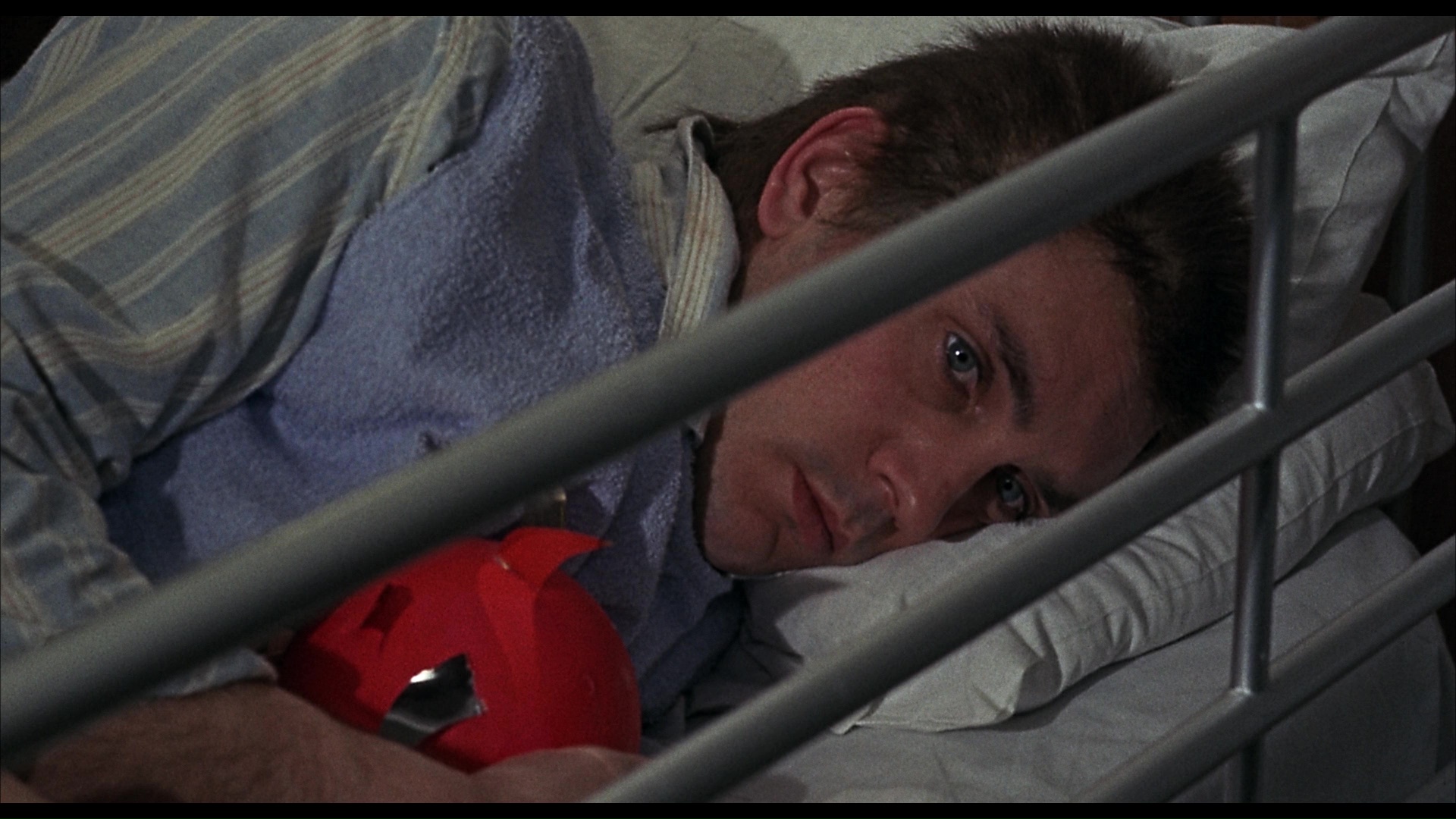 cinematography by Women in Love's Billy Williams. TV director Alan Cooke doesn't do much to distinguish himself here, but everyone else involved ensures it's still time well spent. The adaptation of a 1961 novel by the pseudonymous Charles Eric Maine was obviously pushed into production due to the success of the not dissimilar Charly in
cinematography by Women in Love's Billy Williams. TV director Alan Cooke doesn't do much to distinguish himself here, but everyone else involved ensures it's still time well spent. The adaptation of a 1961 novel by the pseudonymous Charles Eric Maine was obviously pushed into production due to the success of the not dissimilar Charly in 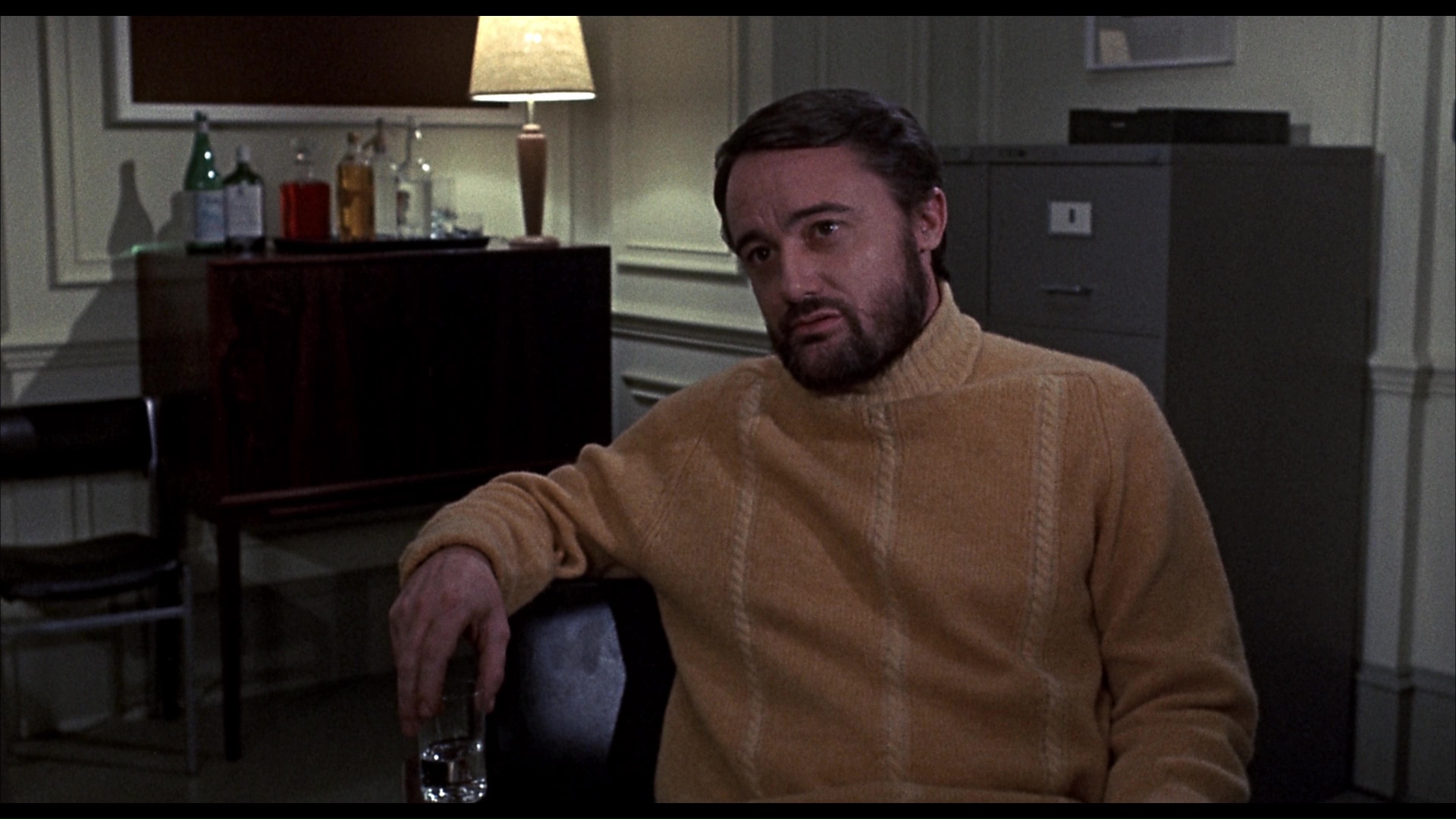 1968, itself taken from Daniel Keyes' Flowers for Algernon (a property Amicus had already gone after), but the Rip Van Winkle angle gives it a unique feel as well.
1968, itself taken from Daniel Keyes' Flowers for Algernon (a property Amicus had already gone after), but the Rip Van Winkle angle gives it a unique feel as well.
Though occasionally aired as an early morning title on TV for years, The Mind of Mr. Soames didn't earn a home video release of any kind until Sony's 2010 MOD DVD. The caliber of that transfer is as excellent as you'd expect for a Sony catalog title, meaning the colors have been left accurate to the period, the odd anomalies of the studio's film stock at the time are left intact (those harsh outlines around dark objects at times -- that's not edge enhancement), and film grain is kept completely natural. That also applies to the film's worldwide Blu-ray debut in 2018 from Indicator, which is taken from the same impressive source but with a greater bump in detail and more carefully modulated black levels. The English LPCM mono track also features optional English SDH subtitles. A thorough new audio commentary 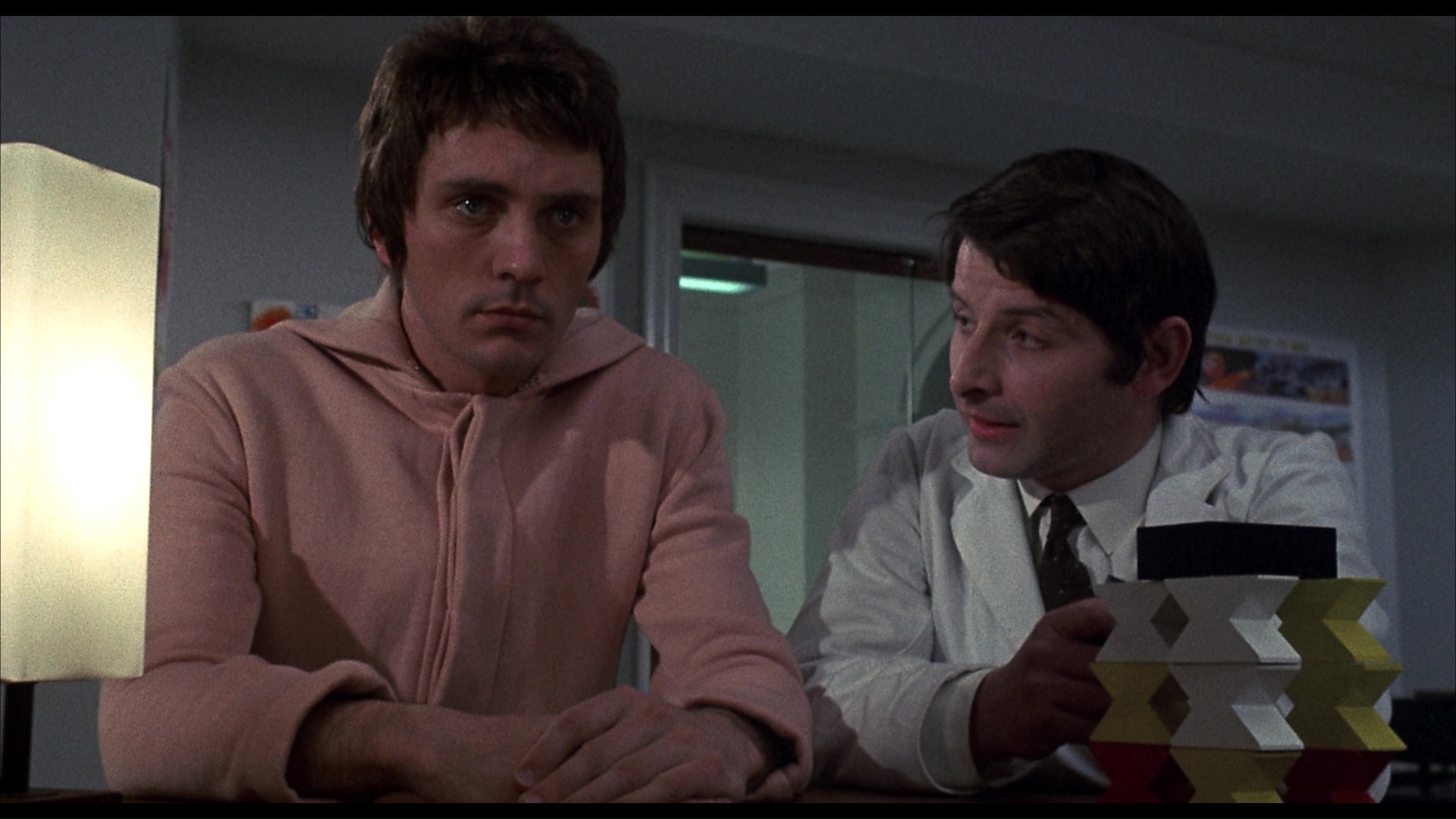 features Kevin Lyons (editor of The Encyclopedia of Fantastic Film and Television and author of a forthcoming book about British sci-fi) and Jonathan Rigby (English Gothic: Classic Horror Cinema 1897–2015) tackling one of Amicus' more obscure offerings, including trivia about the
features Kevin Lyons (editor of The Encyclopedia of Fantastic Film and Television and author of a forthcoming book about British sci-fi) and Jonathan Rigby (English Gothic: Classic Horror Cinema 1897–2015) tackling one of Amicus' more obscure offerings, including trivia about the 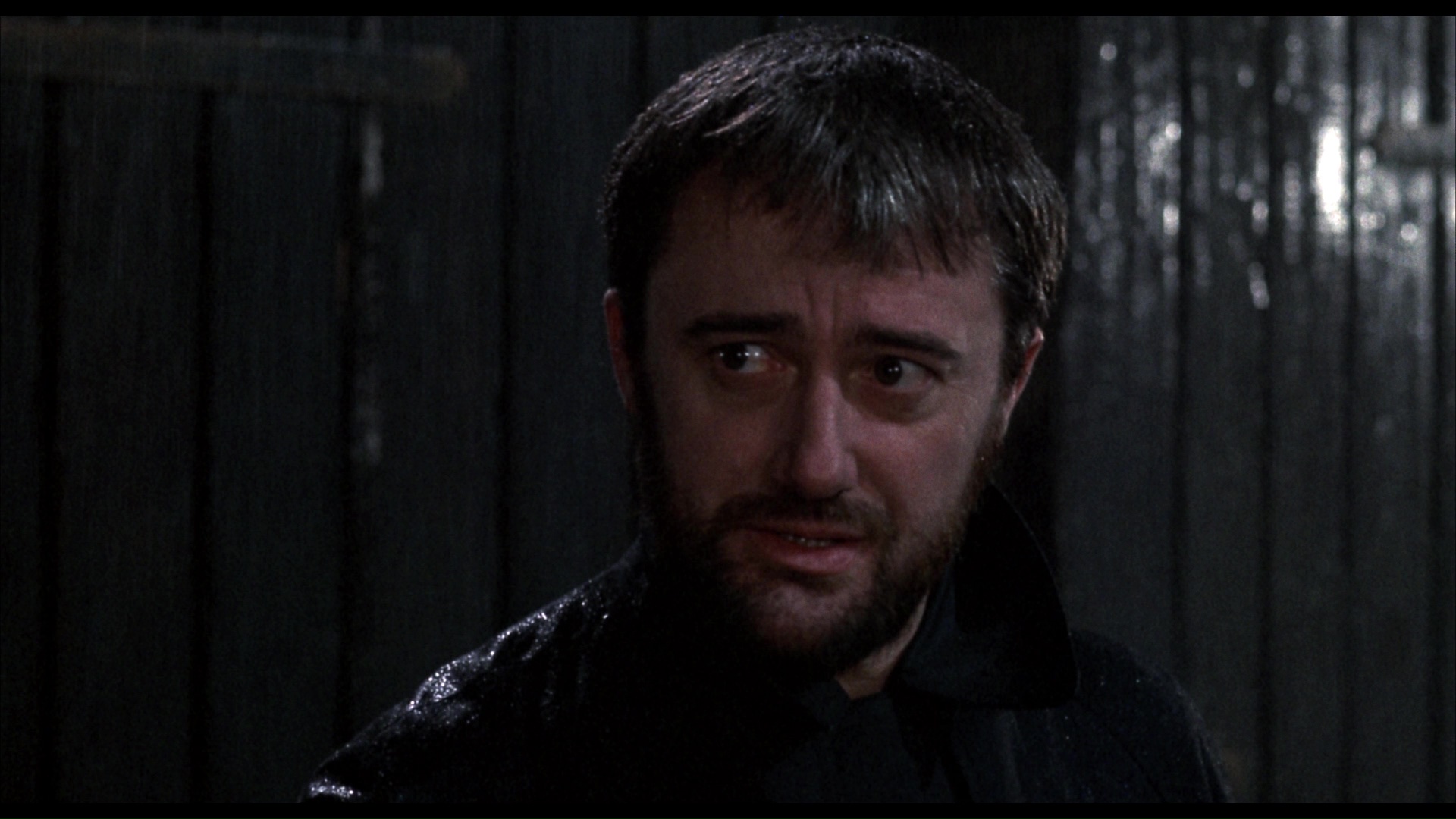 novel's real author (who also penned Spaceways), and sharing a laugh at the preponderance of characters named Maitland in Amicus films and the simple pleasures of Stamp's pink onesie wardrobe choice. A new interview with the star, "The Mind of Mr Stamp (18m51s), is really focused more on his career around that time and the bumpy road he faced just after making this film rather than the project itself, but he's a wonderful storyteller as always and a pleasure to hear. Williams, actor Christian Roberts, researcher John Comfort, and sound mixer John Aldred all turn up for "Memories of Mr Soames" (4m57s), a brief overview of working for Columbia at the time, some conflicts with the director, the circumstances of shooting at Shepperton, and the craft Stamp brought to his role. The theatrical trailer is included along with a substantial 79-image gallery of stills and promotional material, while an insert booklet in the limited (3,000 unit) edition also contains new liner notes by Laura Mayne, text interviews with Stamp, Davenport and Vaughn, bios of Williams and writer David McIlwain, and excerpts from reviews during its original release.
novel's real author (who also penned Spaceways), and sharing a laugh at the preponderance of characters named Maitland in Amicus films and the simple pleasures of Stamp's pink onesie wardrobe choice. A new interview with the star, "The Mind of Mr Stamp (18m51s), is really focused more on his career around that time and the bumpy road he faced just after making this film rather than the project itself, but he's a wonderful storyteller as always and a pleasure to hear. Williams, actor Christian Roberts, researcher John Comfort, and sound mixer John Aldred all turn up for "Memories of Mr Soames" (4m57s), a brief overview of working for Columbia at the time, some conflicts with the director, the circumstances of shooting at Shepperton, and the craft Stamp brought to his role. The theatrical trailer is included along with a substantial 79-image gallery of stills and promotional material, while an insert booklet in the limited (3,000 unit) edition also contains new liner notes by Laura Mayne, text interviews with Stamp, Davenport and Vaughn, bios of Williams and writer David McIlwain, and excerpts from reviews during its original release.
Reviewed on October 6, 2018


 horror fans know the name Amicus
horror fans know the name Amicus  Films for a string of memorable anthology films like Tales from the Crypt and Asylum, but occasionally they dabbled in feature-length stories as well like The Skull and I, Monster. None of these achieved the popularity of their omnibus classics, but one of their more adventurous efforts was 1970's little-known but fascinating The Mind of Mr. Soames
Films for a string of memorable anthology films like Tales from the Crypt and Asylum, but occasionally they dabbled in feature-length stories as well like The Skull and I, Monster. None of these achieved the popularity of their omnibus classics, but one of their more adventurous efforts was 1970's little-known but fascinating The Mind of Mr. Soames cinematography by Women in Love's Billy Williams. TV director Alan Cooke doesn't do much to distinguish himself here, but everyone else involved ensures it's still time well spent.
cinematography by Women in Love's Billy Williams. TV director Alan Cooke doesn't do much to distinguish himself here, but everyone else involved ensures it's still time well spent.  1968, itself taken from Daniel Keyes' Flowers for Algernon (a property Amicus had already gone after), but the Rip Van Winkle angle gives it a unique feel as well.
1968, itself taken from Daniel Keyes' Flowers for Algernon (a property Amicus had already gone after), but the Rip Van Winkle angle gives it a unique feel as well. features Kevin Lyons (editor of The Encyclopedia of Fantastic Film and Television and author of a forthcoming book about British sci-fi) and Jonathan Rigby (English Gothic: Classic Horror Cinema 1897–2015) tackling one of Amicus' more obscure offerings, including trivia about the
features Kevin Lyons (editor of The Encyclopedia of Fantastic Film and Television and author of a forthcoming book about British sci-fi) and Jonathan Rigby (English Gothic: Classic Horror Cinema 1897–2015) tackling one of Amicus' more obscure offerings, including trivia about the  novel's real author (who also penned Spaceways), and sharing a laugh at the preponderance of characters named Maitland in Amicus films and the simple pleasures of Stamp's pink onesie wardrobe choice. A new interview with the star, "The Mind of Mr Stamp (18m51s), is really focused more on his career around that time and the bumpy road he faced just after making this film rather than the project itself, but he's a wonderful storyteller as always and a pleasure to hear. Williams, actor Christian Roberts, researcher John Comfort, and sound mixer John Aldred all turn up for "Memories of Mr Soames" (4m57s), a brief overview of working for Columbia at the time, some conflicts with the director, the circumstances of shooting at Shepperton, and the craft Stamp brought to his role. The theatrical trailer is included along with a substantial 79-image gallery of stills and promotional material, while an insert booklet in the limited (3,000 unit) edition also contains new liner notes by Laura Mayne, text interviews with Stamp, Davenport and Vaughn, bios of Williams and writer David McIlwain, and excerpts from reviews during its original release.
novel's real author (who also penned Spaceways), and sharing a laugh at the preponderance of characters named Maitland in Amicus films and the simple pleasures of Stamp's pink onesie wardrobe choice. A new interview with the star, "The Mind of Mr Stamp (18m51s), is really focused more on his career around that time and the bumpy road he faced just after making this film rather than the project itself, but he's a wonderful storyteller as always and a pleasure to hear. Williams, actor Christian Roberts, researcher John Comfort, and sound mixer John Aldred all turn up for "Memories of Mr Soames" (4m57s), a brief overview of working for Columbia at the time, some conflicts with the director, the circumstances of shooting at Shepperton, and the craft Stamp brought to his role. The theatrical trailer is included along with a substantial 79-image gallery of stills and promotional material, while an insert booklet in the limited (3,000 unit) edition also contains new liner notes by Laura Mayne, text interviews with Stamp, Davenport and Vaughn, bios of Williams and writer David McIlwain, and excerpts from reviews during its original release.